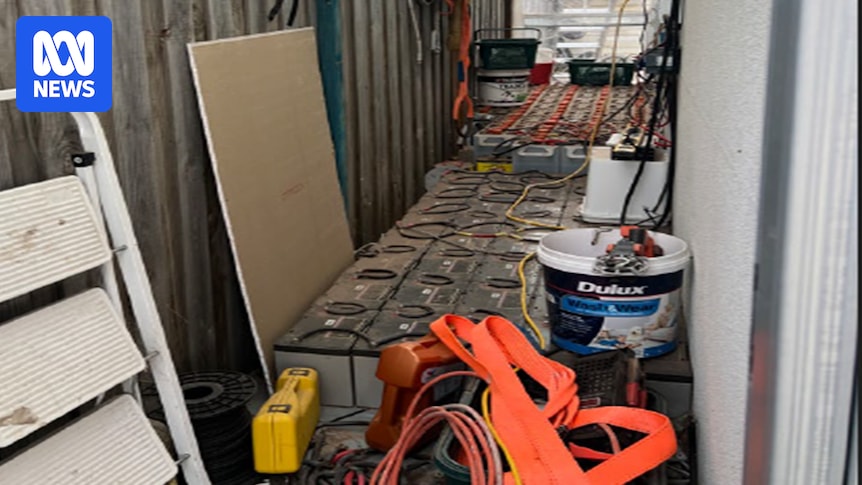You can learn to do a lot on YouTube, but the rise of dangerous homemade batteries has been described as a “ticking timebomb” by a state safety regulator.
Energy Safe Victoria said it’s seeing a rise in the number of homes building their own solar and battery energy storage systems (BESS), which are not being installed by a licensed electrician.
A BESS is a rechargeable battery system that collects energy from sources like the electricity grid, solar power or wind energy.
Energy Safe Victoria chief executive Leanne Hughson says homemade batteries are unsafe. (Supplied: Leanne Hughson)
Energy Safe Victoria chief executive Leanne Hughson said it was legal for anyone to make their own BESS, but it was illegal to install one without a licence.
“Those systems present a high explosion risk,” Ms Hughson said.
“They can catch on fire, people can get electrocuted and they’re not just putting themselves at risk, but also their loved ones and their neighbours.”
Second-hand batteries for sale
Ms Hughson said her officers had been alerted by emergency services about a number of dangerous systems across Victoria.
“People put car batteries together, they get second-hand batteries off Facebook and build something themselves,” she said.
Ms Hughson’s staff have seen batteries built to supply homes and to power cryptocurrency mining, which requires a lot of energy.
“We saw one [case] in Werribee … it was stacked four across with batteries and about 20 deep,” she said.
“Our inspectors had to climb across these batteries to get there and turn off the system.
“It was up against the wall of the house, up against the neighbours wall, it has lots of exposed parts, it was an explosion waiting to happen.”
A homemade battery system found in Clifton Springs, near Geelong. (Supplied: Leanne Hughson)
In the Grampians in the state’s west, a home was partially destroyed by a homemade battery system.
“This person had built a tiny home and built their own solar and BESS,” Ms Hughson said.
“That homeowner wasn’t a qualified electrician and it caught on fire and partially destroyed that property.”
Energy Safe Victoria said it intended to conduct 50 inspections across the state over the financial year.
“That could [result in] a fine of almost $60,000 for home owners and $300,000 for businesses if caught,” Ms Hughson said.
DIY batteries not worth risk
At Lal Lal in western Victoria, Nathan King said a licensed installer quoted him $60,000 to put a BESS in his shed.
“That was for 12 to 18 [solar] panels — I’m nearly 50, I’m not going to spend that much on power in my entire life,” he said.
“There’s a lot of houses out here that run off car batteries, you can understand why people aren’t spending that amount of money.”
But Mr King is not considering a homemade battery as an alternative.
Ms Hughson said making a backyard battery simply was not worth the risk.
“Sometimes we use the phrase … penny-wise, pound foolish — think about the consequences.”
